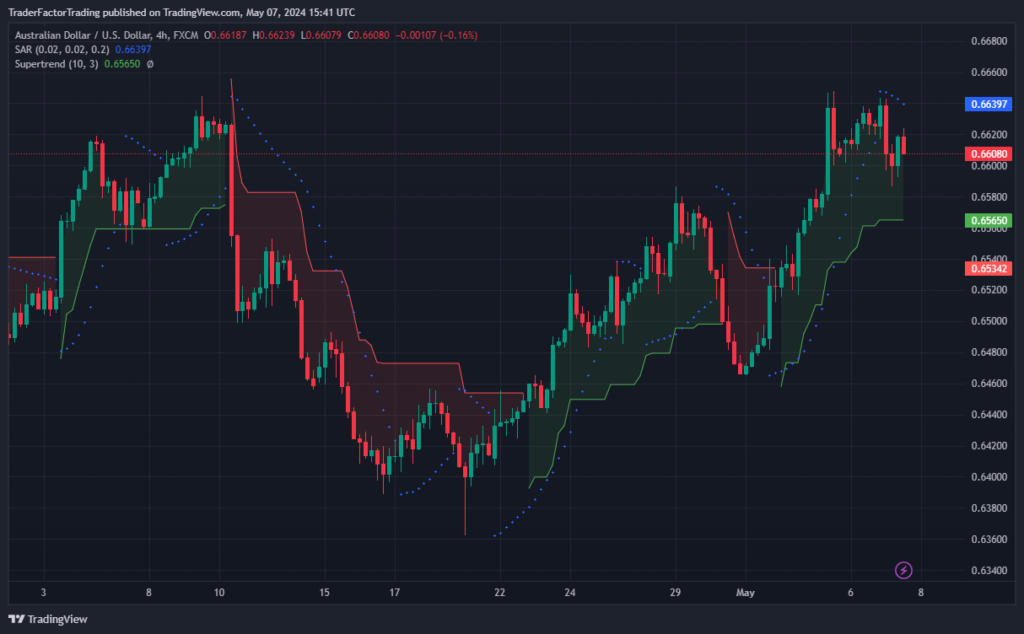In a move that caught markets partially off guard, the Reserve Bank of Australia (RBA) has announced its decision to maintain the cash rate target at 4.35% and keep the interest rate on Exchange Settlement balances unchanged at 4.25%. This decision has led to a notable depreciation in the Australian Dollar (AUD), as traders and investors recalibrate their expectations for the country’s monetary policy trajectory.
RBA’s Stance on Inflation and Interest Rates
The RBA’s statement elucidated that inflation, while moderating, is declining more slowly than previously anticipated. With the Consumer Price Index (CPI) growing by 3.6% over the year to the March quarter—down from 4.1% over the year to December—the decline in inflation is evident but gradual.
Services inflation, in particular, remains high and is only slowly moderating. This nuanced picture of inflation has played a significant role in the RBA’s decision-making process.
RBA Governor Michele Bullock, in her press conference following the May monetary policy announcement, highlighted the central bank’s cautious approach. She stressed the importance of vigilance regarding inflation risks and expressed confidence that the current interest rate levels are well-positioned to guide inflation back towards the RBA’s target range of 2-3% by the second half of 2025, aiming for the midpoint in 2026.
Market Reaction and Analysis
Following the RBA’s announcement, the Australian Dollar experienced a downturn. The AUD/USD pair saw a decline of 0.31%, trading at 0.6604 during the European session. This movement reflects the market’s reaction to the RBA’s less hawkish stance than some had anticipated, especially in light of recent inflation data exceeding expectations.
AUDUSD Chart

RBA’s Monetary Policy Outlook
Despite maintaining the cash rate, the RBA has not dismissed the possibility of future rate hikes. Governor Bullock’s admission that raising rates was discussed but ultimately deemed unnecessary for the time being suggests a degree of flexibility in the central bank’s future actions. She underscored that monetary policy is currently restrictive enough to achieve the inflation target but did not rule out adjustments based on evolving economic conditions.
Global Context and Comparisons
The RBA’s decision comes at a time when central banks worldwide are grappling with the challenge of managing inflation without stifling economic growth. The Federal Reserve, for instance, has indicated that inflation remains too high for consideration of a rate cut. Statements from Fed officials reinforce a cautious approach, emphasizing patience and a data-dependent strategy for future policy adjustments.
Implications for Traders and Investors
For traders and investors, the RBA’s latest policy decision underscores the importance of closely monitoring central bank communications and economic indicators. With the potential for policy shifts still on the horizon, staying informed and agile will be crucial for navigating the currency and financial markets effectively.
In summary, the RBA’s decision to maintain rates reflects a complex balancing act between curbing inflation and supporting economic growth. As the global economic landscape evolves, the direction of the Australian Dollar and the RBA’s monetary policy will continue to be key areas of focus for markets around the world.
Disclaimer:
All information has been prepared by TraderFactor or partners. The information does not contain a record of TraderFactor or partner’s prices or an offer of or solicitation for a transaction in any financial instrument. No representation or warranty is given as to the accuracy or completeness of this information. Any material provided does not have regard to the specific investment objective and financial situation of any person who may read it. Past performance is not a reliable indicator of future performance.
Author
-

Phyllis Wangui is a Financial Analyst and News Editor with qualifications in accounting and economics. She has over 20 years of banking and accounting experience, during which she has gained extensive knowledge of the forex, stock news, stock market, forex analysis, cryptos and foreign exchange industries. Phyllis is an avid commentator on these topics and loves to share her insights with others through financial publications and social media platforms.
View all posts



















